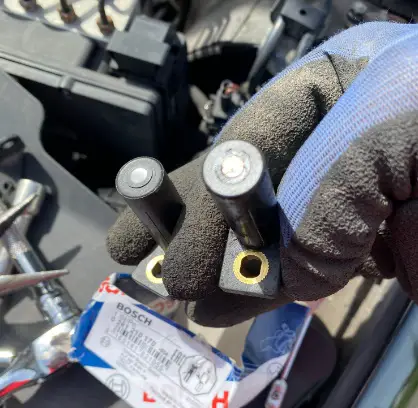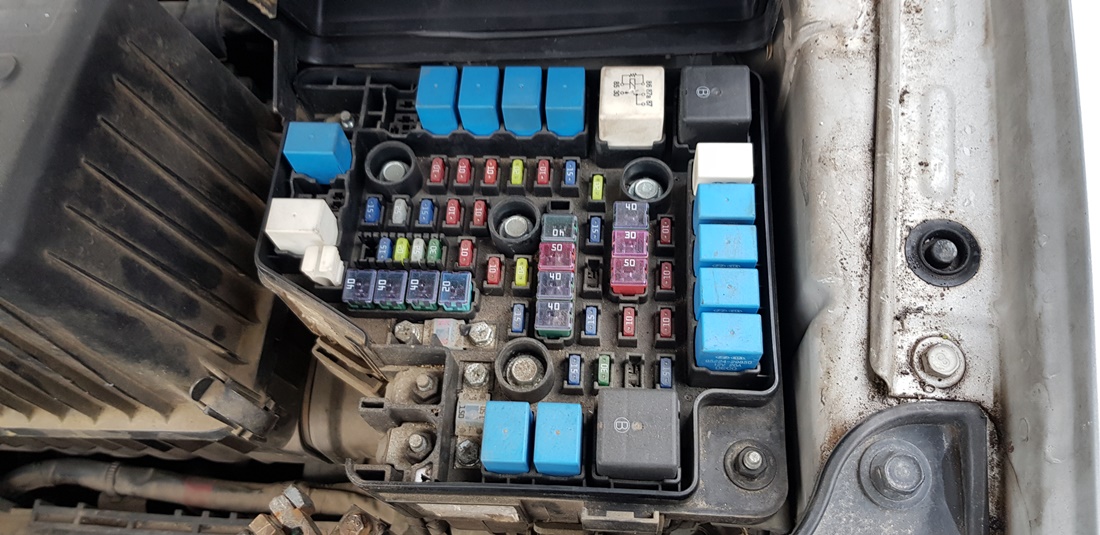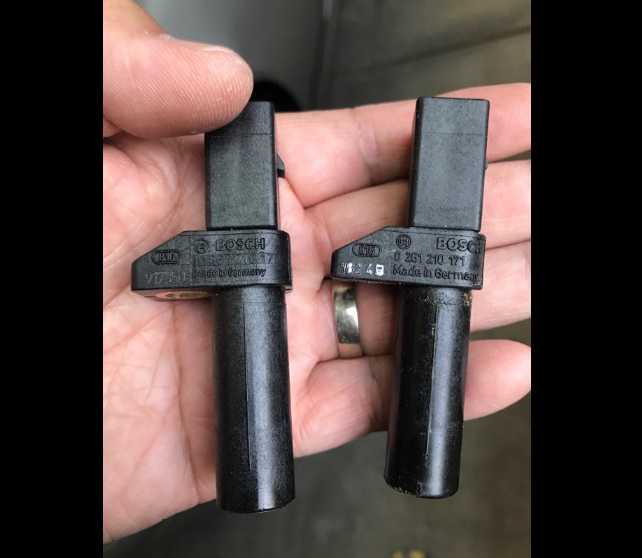As vehicles age, a lot of times carbon builds up in both the engine and the fuel injectors and makes you burn a lot more gas and get worse gas mileage.
The fuel injectors can get clogged up and you end up using more gas than you need to.
Key Takeaway
- To fuel injectors without removing them, you can use a fuel injector cleaning tool filled with cleaning fluid, disconnect the fuel rail, and follow the instructions provided on the product packaging.
- Fuel injectors in cars are components that deliver pressurized fuel into the combustion chamber of the engine for efficient and precise fuel delivery.
What Are Fuel Injectors In Cars
Fuel injectors in cars are crucial components of the fuel delivery system. They are responsible for delivering pressurized fuel into the combustion chamber of the engine.
Fuel injectors replace traditional carburetors and provide a more efficient and precise way of delivering fuel to the engine.
They ensure that the right amount of fuel is sprayed at the correct time directly into the intake manifold or cylinder, resulting in better fuel atomization and combustion.
This leads to improved engine performance, fuel efficiency, and reduced emissions.
The fuel injectors are controlled by the engine’s electronic control unit (ECU), which monitors various parameters such as engine speed, temperature, and load to determine the optimal fuel injection timing and duration says JDPower.
How To Clean Your Fuel Injectors Without Removing Them?
Cleaning your fuel injectors is something that you should do every 30,000 miles. You have to be a skilled mechanic to be able to remove your fuel injectors, clean them, and then re-install them. What if I show you how to clean your fuel injectors without removing them?
For cleaning my fuel injectors without removing them I use a fuel injector cleaning tool that  . Follow the steps and at the end, you will have clean fuel injectors which will significantly increase your vehicle’s fuel economy.
. Follow the steps and at the end, you will have clean fuel injectors which will significantly increase your vehicle’s fuel economy.
1. Locate the fuel rail on the fuel injector

The fuel rail is one of the most important components of the fuel injector. It has the function to supply the fuel injectors with fuel. The location of the fuel injectors and fuel rail will vary from vehicle to vehicle. It’s best if you read your manufacturer’s manual to successfully locate your fuel rail.
2. Disconnect the fuel rail

Once you locate the fuel rail on the fuel injectors, go ahead and disconnect it. You should have an exposed hose to which you will connect the fuel injector cleaning tool later on.
3. Fill the fuel injector cleaning tool with a cleaning solution

Remove the cap of the fuel injector cleaning tool and add the cleaning solution. I personally use a fuel-cleaning product made by Lucas ( ). Make sure to fill the cleaning tool all the way to the top.
). Make sure to fill the cleaning tool all the way to the top.
4. Attach the cleaning tool to the hood

The cleaning tool has to be above the engine. Ideally, you should hang the cleaning tool on the hood. There is a hook on the cleaning tool which allows you to do so.
5. Connect the outlet pipe to the fuel rail

After you hang the cleaning tool, you need to attach the outlet pipe of the cleaning tool to the exposed fuel rail. The cleaning tool comes with a lot of connectors. Install the connector that fits your fuel rail and attach the cleaning tool.
6. Remove the fuel pump relay from the fuse box

Go to the fuse box and take out the fuel pump relay to turn the fuel pump off so it cannot supply the fuel to the engine. There are many relays and they all look the same. So, it’s best if you read the manufacturer’s manual to see which relay is for the fuel pump.
7. Connect the air compressor to the cleaning tool

Connect the air compressor to the air inlet connector of the cleaning tool and set the PSI anywhere between 40 and 50. You need air to push the cleaning fluid into the fuel rail. If you don’t have an air compressor,  .
.
8. Start your vehicle

Start your vehicle and keep it running until there is no more cleaning fluid in the cleaning tool. When the cleaning tool runs out of cleaning fluid, you need to turn your vehicle off and disconnect the cleaning tool.
9. Reconnect your fuel pump relay and fuel rail hose
Re-install the fuel pump relay in the fuse box and reconnect the fuel rail hose. Make sure that your engine is cold so you won’t get burned. At this point, you should have clean fuel injectors.
What Are The Most Common Signs Of Bad Fuel Injectors
There are 6 common signs that a bad or failing fuel injector will give before it fails. These signs and symptoms can be caught even by an untrained mechanic.
1. Engine shaking
A clogged fuel injector will create an unbalanced situation resulting in a shaky or rough idle. An engine shaking is a sign of a misfire. You can use a scan tool and determine which cylinder is misfiring. Usually, P0301, P0302, P0303, and P0304 error codes are associated with cylinder misfiring. You can use a graphing tool to test each fuel injector.
2. Lack of power
When a cylinder is not firing properly, there will be a lack of power at takeoff and high speed. Dirty fuel injectors will restrict the amount of fuel going to the cylinders causing a lean condition. A lean condition can result in a lack of power. This is very hard on the engine causing premature wear.
3. White smoke coming out of the tailpipe
Usually, when white smoke starts coming out of your tailpipe, this means the fuel injector is stuck open and is spraying more gas than it should. This action will result in poor gas mileage and will trigger a rich code.
4. Hard starting
Your vehicle will have a hard time starting if one or more fuel injectors are completely clogged up. Cleaning them might not be a solution at this point.
5. Vehicle not starting at all
When one or more fuel injectors are stuck open, the excess fuel can foul out the spark plug. The spark plugs can get wet from the fuel and it won’t be able to create a spark to ignite the combustion.
6. Bad catalytic converter or oxygen sensor
Usually, when excess fuel is dumped into the exhaust system for a long period of time, this can damage the oxygen sensor and catalytic converter.
Causes Of Clogged Fuel Injectors
- Low-quality or contaminated fuel
- Build-up of deposits and carbon deposits over time
- Use of incorrect fuel additives
- Fuel filter blockage or clogging
- Inadequate maintenance and servicing of fuel injectors
- Engine overheating
- Varnish and gum formation in the injectors
- Water or moisture in the fuel system
- Improper storage of vehicles leads to fuel deterioration
- Fuel system component failure.
Why Should You Clean Fuel Injectors?
- Improved fuel efficiency: Cleaning fuel injectors can optimize the fuel delivery process, ensuring that the correct amount of fuel is injected into the combustion chamber. This can improve fuel efficiency and help save money on fuel costs.
- Enhanced engine performance: Clogged fuel injectors can disrupt the fuel spray pattern and lead to uneven fuel distribution, resulting in decreased engine performance. Cleaning the injectors restores their proper function, improving acceleration, power, and overall engine performance.
- Prevention of engine damage: Clogged fuel injectors can cause misfires, rough idling, and even engine stalling. By cleaning the injectors, you can prevent potential engine damage by maintaining proper fuel flow and combustion.
- Reduced emissions: Clean fuel injectors promote better fuel atomization, leading to more complete combustion. This can result in reduced emissions, helping to protect the environment and meet emission regulations.
- Prolonged injector lifespan: Regularly cleaning fuel injectors removes deposits and contaminants that can cause premature wear and tear. This can extend the lifespan of the injectors, avoiding expensive repairs or replacements in the future.
- Smoother engine operation: Clean fuel injectors contribute to a smoother and quieter engine operation. They help eliminate rough idling, hesitation, and other performance issues, providing a more enjoyable driving experience.
- Maintaining optimal fuel system function: Fuel injectors are vital components of the fuel system, and keeping them clean ensures the overall health and efficiency of the entire system. It helps prevent clogs in other fuel system components and maintains proper fuel pressure regulation.
- Recommended maintenance: Many vehicle manufacturers recommend periodic fuel injector cleaning as part of routine maintenance. Following these recommendations can help keep your vehicle in optimal condition and preserve its warranty coverage.
How Often To Clean The Fuel Injectors
It is suggested to clean fuel injectors every 30,000 to 45,000 miles or every three years for vehicles built after 2004.
Will a Clogged Injector Clear Itself?
No, a clogged injector will not clear itself. When a fuel injector becomes clogged, it can restrict the flow of fuel into the engine, leading to poor performance and potential damage.
It is important to address a clogged injector promptly to prevent further issues.
FAQs
Q: What are fuel injectors?
A: Fuel injectors are small valves that spray fuel into the combustion chamber of an engine.
Q: Why is it important to clean fuel injectors?
A: It is important to clean fuel injectors to ensure that they are delivering the correct amount of fuel in a fine mist, which improves engine performance and fuel efficiency.
Q: Can I clean my fuel injectors without removing them?
A: Yes, it is possible to clean fuel injectors without removing them. There are various methods and products available for this purpose.
Q: How can I clean my fuel injectors without removing them?
A: There are several ways to clean fuel injectors without removing them. One method is to use a fuel injector cleaning kit that contains a cleaning solvent. Another method is to use a fuel system cleaner that can be added to the fuel tank.
Q: What are the signs of bad fuel injectors?
A: Some signs of bad fuel injectors include rough idling, poor fuel economy, engine misfires, and a decrease in overall engine performance.
Q: How often should fuel injectors be cleaned?
A: The frequency of fuel injector cleaning depends on several factors, including the age and condition of the injectors, as well as the quality of fuel being used. It is generally recommended to clean the fuel injectors every 30,000 to 50,000 miles or as advised by the vehicle manufacturer.
Q: Can I clean clogged fuel injectors?
A: Yes, clogged fuel injectors can be cleaned. It is important to use the appropriate cleaning method and products to remove any deposits or contaminants that may be causing the clog.
Q: What happens if fuel injectors are not cleaned?
A: If fuel injectors are not cleaned regularly, they can become clogged and cause a decrease in engine performance, fuel efficiency, and overall drivability of the vehicle.
Q: Is it possible to clean fuel injectors without professional help?
A: Yes, it is possible to clean fuel injectors without professional help. There are DIY methods and products available for cleaning fuel injectors at home.
Q: Will cleaning my fuel injectors improve fuel economy?
A: Yes, cleaning fuel injectors can help improve fuel economy by ensuring that they are delivering the correct amount of fuel in a fine mist, which promotes more efficient combustion says DKUperformance.
In Conclusion
We hope that this blog post was helpful in providing an overview of how to clean your fuel injectors without removing them.
Cleaning your fuel injectors is an important maintenance task, and it’s much easier when you can do it without having to take them out.




